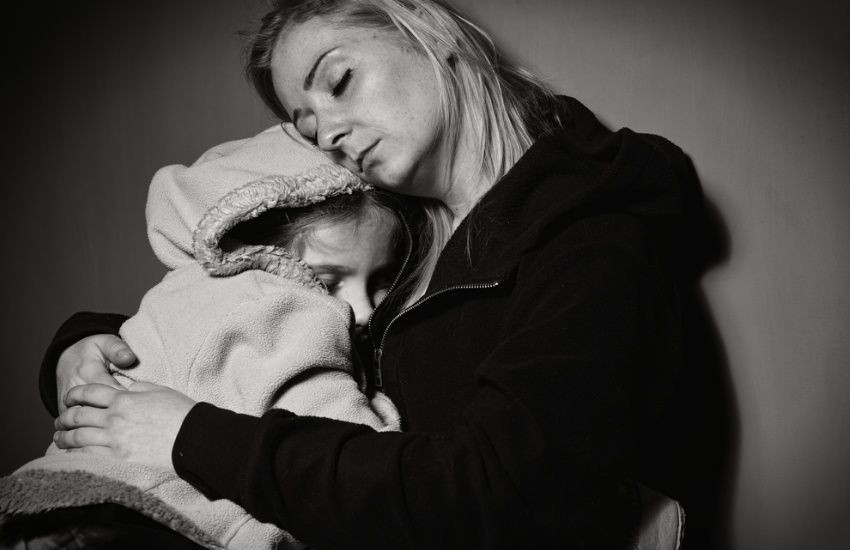


From sleeping out of cars to living in toxic households after becoming displaced in the housing market – the stories of people left without somewhere to call their own home in Guernsey have been revealed.
It comes as a new charity is launched – called At Home in Guernsey - to tackle the issue of homelessness locally, which has been described as a hidden problem due to the lack of visible rough sleepers.
The Guernsey Community Foundation, which is leading the initiative with financial backing from Specsavers, called for testimonies to be submitted a few months ago.
These anonymous responses were relayed yesterday by Chief Executive Jim Roberts. He recounted the experiences of several people battling to find a home against all the odds.
“Every time [Alex Lemon] and I gave an interview every time we'd get back to the office, and the phone would ring. It would be a man who'd been living out of his car for weeks, or the owner of a business who was worried about a woman sleeping in the garages overnight,” he said.
“When I was writing this speech yesterday, we got an email saying: ‘I've been given your email address as myself and my partner are struggling to get a deposit for a flat. We are going to be homeless in March. We've just found this out. Can you help?’,” he added.
This is just one example, but common themes weave around the stories.

Pictured: Jim Roberts delivering his speech to an audience at Specsavers yesterday.
The breakdown of relationships can force many into financial hardship, to the point where single parents must make the choice between food or shelter for themselves and their children.
“I was told that my lease would not be renewed, and I had to find somewhere else to live. Since then, I've separated from my husband, and I cannot afford rental prices while raising my children,” one woman said.
“Now it looks like the landlord will have to evict us before [Housing] can think about helping. I don't want to be evicted or have the stigma attached to it. But I cannot see any other way of keeping a roof over my children's heads.”
Another said landlord preferences for no children left the pair high and dry: “When I had a child at a young age, I couldn't rent anywhere. I had good references. I'd put a deposit and rent money down. Estate agents wouldn't even put me forward for a property because I had a child.
Others do have somewhere to go, but at the risk of putting family members in harm's way.
“I'm currently living with my teenage children in my ex-partner's house He's not their dad. I sleep on the sofa. They still have their rooms. We split up over a year ago. I work full-time but my salary is so low. I cannot afford to move out. I can't afford a rental deposit and I can't afford furniture,” they said.
One person simply reported: “Marriage ended due to abuse. Had nowhere to go. States house offered. Still too expensive. Had to use food banks. Couldn't always meet rent. Threatened with court”.

Pictured: Abusive relationships exacerbated the issues for some locals.
Those struggling with poor health have come up against challenges with their housing, as in this case:
“I used to reside in a local property with a license holder and then my relationship ended, and me and my son have nowhere to live. We're on the sofa in a friend's house and waiting for open heart surgery and I will not be able to come home afterwards due to stairs and no shower and damp and mould,” they said.
“Doctors have requested a move to social housing. My operation is due any day and is expected to be a six-month recovery time.
A man in his fifties who is partially blind and out of work due to heart disease and severe anxiety was unable to find alternative accommodation after being notified of eviction from a landlord.
“I've just received an eviction notice from the Sheriff and waiting for an actual court summons.... there are no flats in my price range.
“I haven't asked anyone for financial help. As I don't know if there is such help out there. I wouldn't know where to start with charities and my anxieties would get in the way anyway.

Pictured: Others turned to sleeping in cars while they waited for suitable or affordable homes.
The struggles aren’t limited to those out of work or with poor health, however. The troubles and anxieties can strike those who work over 30 hours a week in what would generally be perceived as the top local industry which drives the economy and many of our livelihoods.
One woman in her thirties working in finance said: “I've been renting alone for years but my landlord wants to sell. I will effectively be homeless very soon, as I've made many enquiries, but none have resulted in me finding a property. I'm not entitled to benefits or a States house due to being over the salary threshold.
Another person said a lack of options despite a relatively healthy income saw the back of their car become the bedroom.
“I work for a finance firm with a wage that would be able to give me a decent living in the UK. But the lack of affordable housing left me sleeping in my car for two months. I've since found a place,” they said.
“But it was incredibly stressful - that period - and it affected the quality of my work, and my physical and mental health.”
The breakdown of a relationship affected another person, who also was forced to sleep in their vehicle despite working throughout the week: “I ended up homeless as a result of breaking up from my partner after nearly 10 years. Even though I work full-time I have to live out of my car, I go to the gym every day to shower.

Pictured: Some had nowhere to wash.
This broad brush of issues reiterated Mr Roberts’ wish for homelessness to be legally defined in Guernsey.
“The word homelessness suggests a fixed and precise condition, but it's useful to think of a spectrum of homelessness,” he said. “At one end of people sleeping rough and at the other end is someone who may have a roof over their head. But they're at risk of harm if they stay where they are.
“Or they're at risk of eviction, or their accommodation is severely ill suited to their needs being inaccessible or damp or overcrowded.”
Someone in the 18-24 age bracket summed it up well in their short testimony...
“I stay in the spare room with a friend. It's very difficult. They don't want me here and that's understandable.”
The charity At Home in Guernsey will soon launch for the public with help and advice available to those who need it.
New service to tackle “hidden homelessness” problem in Guernsey
Comments
Comments on this story express the views of the commentator only, not Bailiwick Publishing. We are unable to guarantee the accuracy of any of those comments.